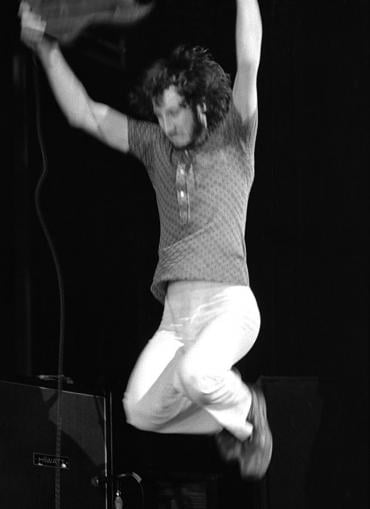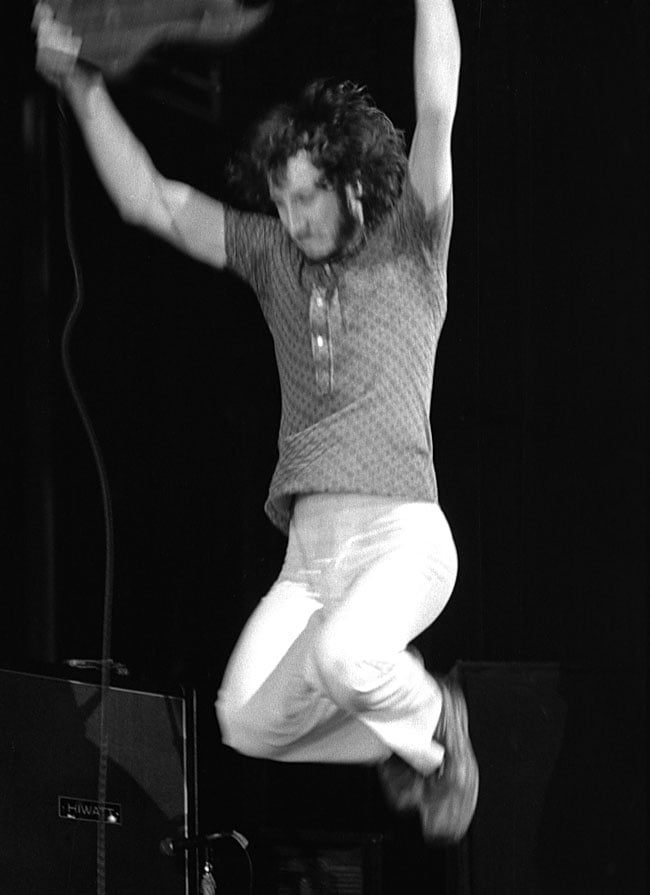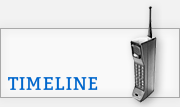Rock and Power-pop
Rock and Power-pop

The Who perform at the Auditorium Theatre, 1971
Credit: Sun-Times Media file photo
If you wanted to rock in Chicago at the beginning of the ’70s, you had to face down the feeling that you probably missed it. The Kinetic Playground at Clark and Lawrence in Uptown, the place young people looked forward to going to when they came of age to see such groups as The Jefferson Airplane, Janis Joplin, Jimi Hendrix, The Doors, Frank Zappa, even The Who, had burned down. Half the acts that played there were now dead – Jimi, Janis, Jim Morrison. The Beatles broke up and if that wasn’t depressing enough, recall that Rolling Stone Brian Jones was also dead. Ravinia had a brilliant summer of rock acts that so traumatized the locals it was never to be repeated.
“Mommy’s alright, Daddy’s alright
They just seem a little weird”--“Surrender” by Cheap Trick
Soon enough the Auditorium Theater, Louis Sullivan’s fabled hall for classical music and opera, was opened to Frank Zappa and the Mothers and the takeover of large venues by such bands as Led Zeppelin, the Rolling Stones, and the Who began. The Stadium, the Ampitheater, the Aragon Ballroom, the Arie Crown, the Field House at North Central College in Naperville, and eventually the Uptown Theater opened its multiple doors to thousands of kids dying to be there when the circus came through town. Mick Jagger emerged from a giant metal lotus flower-like set to the rhythmic chords of “Honky Tonk Woman” and sang “It’s Only Rock and Roll” and “Brown Sugar.” We won’t even say what he rode halfway through the show. Jimmy Page ripped through “Stairway to Heaven” and “Misty Mountain Hop.” David Bowie defied all expectations and looked like a gender-bending alien. It was spectacular.
Locally, the excitement of Chicago’s successful blues, soul, funk. and rock bands in the ’60s (the Paul Butterfield Blues Band, the Rotary Connection, the Electric Flag, Earth, Wind & Fire, The Chicago Transit Authority, the Shadows of Knight, The Ides of March) were equally played out or soon to leave the city forever. White flight had stranded suburban kids whose garage-band tenacity led to the next wave of local rock music. From Berwyn came Survivor. From Western Springs, Styx. From Oak Park, power-pop phenomons Pezband and, later, Off Broadway. From Zion, Shoes. From way south in Champaign, REO Speedwagon. And from Rockford (maybe more a competing metropolis than a suburb), Cheap Trick. Power-pop united the blue-collar feel and sound of Pezband, Shoes, Off Broadway, and Cheap Trick. And while you could catch a lot of these acts at such places as Haymaker’s in Prospect Heights and The Alley in Highwood, eventually they migrated to arenas and the large stage at Taste of Chicago, playing to scores of fans.







